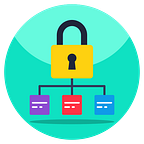When using shared campus devices, always log out of accounts to protect your sensitive data. Thoroughly clear your browser history, including cached files and cookies, to eliminate traces of your online activities. Be cautious with any sensitive information and never leave devices unattended. Enabling two-factor authentication on your accounts adds an extra layer of security, even if your password is compromised. By following these essential practices, you can safeguard your digital identity on shared campus devices. To learn more about this important topic, keep reading.
✅ Current deal: 🔥Get NordVPN with up to 72% OFF!🔥
Logging Out of Accounts
Always log out of your accounts when finished using a shared campus device. This helps protect your sensitive personal information from being accessed by unauthorized users.
Be sure to completely log out of all websites, apps, and online accounts before stepping away from the device. Neglecting to log out could lead to your information being compromised.
Clearing Browser History
In addition to logging out of your accounts, clearing your browser history on shared campus devices is a critical step to safeguarding your online privacy and preventing unauthorized access to your digital footprint.
Verify you thoroughly clear your browsing data, including cached files, cookies, and search history, to eliminate any trace of your online activities on the shared device.
Safeguarding Sensitive Information
Safeguarding sensitive information on shared campus devices demands your utmost diligence, as inadvertently exposing private data can have far-reaching consequences.
Always log out of accounts, avoid storing passwords, and never leave devices unattended.
Employ encryption tools and be cautious when accessing sensitive content.
Staying vigilant is key to protecting your identity in a shared digital environment.
✅ Current deal: 🔥Get NordVPN with up to 72% OFF!🔥
Enabling Two-Factor Authentication
Enabling two-factor authentication on your campus account provides an extra layer of security, preventing unauthorized access even if your password is compromised.
You’ll get a one-time code sent to your phone or email, which you’ll enter along with your password to log in.
It’s a simple step that greatly boosts the protection of your account.
Related Articles:
Affiliate Disclosure: By clicking on our links, we may earn commissions at no additional cost to you.
